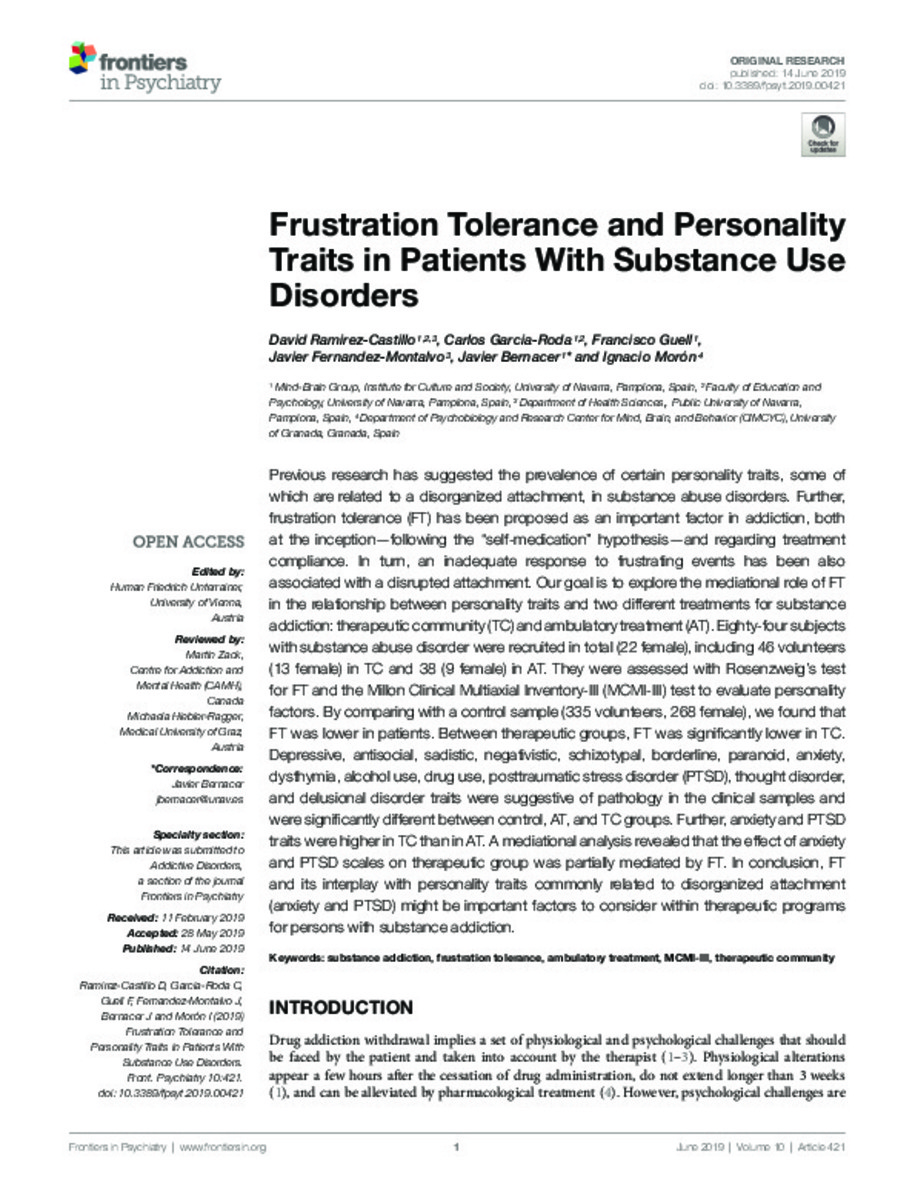Frustration tolerance and personality traits in patients with substance use disorders
Palabras clave :
Substance addiction
Frustration tolerance
Ambulatory treatment
Therapeutic community
Fecha de publicación :
2019
Editorial :
Frontiers Media
Proyecto:
70721 (FCT); 2016/057 (FCT)
Nota editorial :
This is an open-access article distributed under the terms of the Creative Commons Attribution License (CC BY)
Cita:
Ramirez-Castillo D, Garcia-Roda C, Guell F, Fernandez-Montalvo J, Bernacer J and Morón I (2019) Frustration tolerance and personality traits in patients with substance use disorders. Front. Psychiatry 10:421
Aparece en las colecciones:
Estadísticas e impacto
0 citas en

0 citas en

Los ítems de Dadun están protegidos por copyright, con todos los derechos reservados, a menos que se indique lo contrario.









